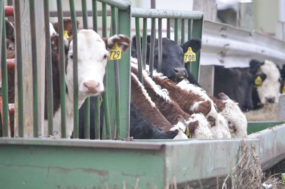The cyberattack on the nation’s second largest beef processing company was expected to last just one day, as JBS officials said the company was working to get facilities back online by Wednesday afternoon.
The ransomware attack hit facilities in the U.S. and Australia, the company said in a statement on Tuesday. The White House said that the attack appears to be based in Russia, similar to a gas pipeline attack earlier in May.
“Our systems are coming back online, and we are not sparing any resources to fight this threat,” said Andre Nogueira, JBS USA CEO. “We have cybersecurity plans in place to address these types of issues, and we are successfully executing those plans. Given the progress our IT professionals and plant teams have made in the last 24 hours, the vast majority of our beef, pork, poultry and prepared foods plants will be operational [Wednesday].”
The company said it had determined on Sunday, May 30, that it was the target of the attack and took action with its technology teams and third-party specialists to defend itself. JBS accounts for 23% of the U.S. cattle capacity, according to the CME Group, and probably larger than that when accounting for the fed cattle plants only. JBS also accounts for about one-quarter of the nation’s pork supply processing.
The impact on prices were already being felt Wednesday, as Choice box cuts rose $3.59 to $334.56 late Tuesday, while Select cuts rose $5.55 to $306.45.
Losing one quarter of the nation’s beef supply in one day is the equivalent of 20,000 head, according to Trey Malone, an assistant professor of agriculture at Michigan State University, in speaking to The Associated Press, although some estimates were even higher.
While the one-day shortage is expected to be remedied quickly, analysts say the hit comes at an inopportune time as grilling season heats up after Memorial Day, and demand is climbing among U.S. consumers.
“Retailers and beef processors are coming from a long weekend and need to catch up with orders and make sure to fill the meat case,” the CME Group Daily Livestock Report reads for June 1. “If they suddenly get a call saying that product may not deliver tomorrow or this week, it will create very significant challenges in keeping plants in operation and the retail case stocked up.”
Ransomware attacks are growing in the U.S., with the most noticeable instance being the attack made by the criminal cybergroup DarkSide on the Colonial Pipeline in May. That disruption lasted a week and created shortages and price surges along the East Coast.
New attacks were reported Wednesday in transportation, as ferry services in Cape Cod, Nantucket and Martha’s Vineyard were hit as summer tourists flocked to Massachusetts.
The ransomware attacks are based on malware that breaks into companies’ encrypted data files on devices or computers, making those networks inoperable. The attackers demand ransom payments in exchange for the data to be returned.
In its statement, JBS said it was “not aware of any evidence at this time that any customer, supplier or employee data has been compromised.” ![]()
-
David Cooper
- Managing Editor
- Progressive Cattle
- Email David Cooper






